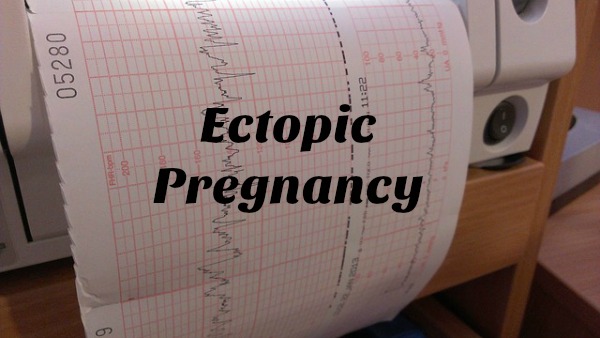Pregnancy, a period often characterized by anticipation and joy, can sometimes take a heart-wrenching turn when complications arise. For those experiencing such events, grief and emotional turmoil can feel insurmountable. When pondering the question—how does spirituality coexist with profound sorrow?—the teachings of the Baha’i Faith offer profound insights into navigating the turbid waters of grief and healing. This guide seeks to illuminate the principles of Baha’i teachings as they pertain to the delicate subject of pregnancy loss and the path towards emotional restoration.
At the heart of the Baha’i Faith lies the belief in the fundamental oneness of humanity and the interconnectedness of all life. This perspective cultivates an attitude of compassion toward oneself and others during periods of suffering. The first step on the journey through grief involves anchoring oneself in these teachings while acknowledging the multifaceted nature of emotional experiences inspired by loss. Embracing the emotions felt during this time—sorrow, anger, confusion—becomes essential to the healing process.
Understanding Grief through a Baha’i Lens
The Baha’i teachings recognize grief as a natural and human response to loss. In acknowledging pain, one embraces not only the personal experience but also the universal—where sorrow finds its place alongside love. Baha’is are encouraged to contemplate the teachings of ‘Abdu’l-Baha, who spoke eloquently of the soul’s journey through trials. He posited that difficulties could serve as catalysts for spiritual growth, urging believers to seek the underlying wisdom in their struggles.
To navigate grief effectively, one may find solace in prayer and meditation, practices integral to Baha’i spirituality. Engaging in heartfelt prayer can act as a balm for the aching spirit, creating a sacred space within which individuals can express their deepest concerns and feelings. The Baha’i writings also emphasize the importance of community support, which champions the idea that collective healing is superior to solitary endurance.
The Role of Community Support
In the wake of a loss, extending oneself into the warmth of community can foster healing. Baha’i gatherings, whether formal or informal, can provide a safe environment where grief can be shared without judgment. The communal aspect of the Baha’i community encourages individuals to engage with others who may have traversed similar paths, bestowing a sense of understanding and shared experience.
Holding a memorial or remembrance service can create a meaningful occasion for honoring lost potential. Such events emphasize reflection and gratitude, encouraging participants to celebrate the brief existence of a pregnancy while uplifting the grieving family. This collective acknowledgment of loss plays a pivotal role in the healing process, reinforcing connections and reducing feelings of isolation.
Emotional Expression and Healing
Every individual’s healing journey is unique, and expressing emotions in diverse ways can facilitate the process. Baha’i teachings value the expression of feelings through art, writing, or symbolic rituals. Engaging in artistic endeavors allows for a form of catharsis that can illuminate the intricate tapestry of grief. Journaling one’s thoughts can also serve as an effective means of processing emotions, charting a course through the labyrinth of sorrow.
Furthermore, nurturing the body through self-care practices, including exercise and nutrition, plays a vital role in fostering recovery. Maintaining a balance between physical, emotional, and spiritual wellness encourages holistic healing. Baha’is are encouraged to be mindful of their well-being, recognizing that caring for oneself is an integral part of the grieving journey.
Finding Meaning in Loss
Central to Baha’i belief is the understanding that life does not merely consist of temporal existence. The teachings advocate for a broader perspective on life and death, positing that the soul continues beyond physical limitations. This belief can aid individuals in finding deeper meaning in their loss, fostering resilience amid grief. The notion that experiences, albeit painful, contribute to the evolution of the soul instills a sense of purpose that transcends immediate despair.
Additionally, Baha’i teachings encourage individuals to engage in acts of service during their healing journey. When one channels their grief into helping others, it catalyzes a transformative process that often brings solace. Acts of kindness can be directed toward those facing similar losses or related challenges, providing an opportunity for healing through compassion.
Forging a New Path
As individuals navigate the complex emotional landscape following pregnancy loss, the Baha’i Faith emphasizes the notion of renewal. Healing is not linear; it may manifest in waves and intertwine with moments of joy and sorrow. Embracing a growth mindset, believers are encouraged to remain open to new beginnings and possibilities. Just as spring follows winter, the teachings advocate that healing often arrives, heralding new opportunities for the soul’s journey.
The teachings also underscore the transformative power of hope, serving as a beacon in the darkest of times. The Baha’i Faith teaches that hope is not naivety, but rather an active choice to believe in brighter days ahead. Manifesting hope in the womb of grief cultivates a fertile ground for healing, growth, and eventual acceptance.
In conclusion, when pregnancy goes wrong, the teachings of the Baha’i Faith offer a resilient framework for navigating grief and healing. By embracing community, engaging in emotional expression, and finding meaning in loss, individuals can forge a path illuminated by hope and compassion. As the heart begins to heal, the nurturing embrace of spirituality will be there, guiding each step of the journey toward renewal and peace.
